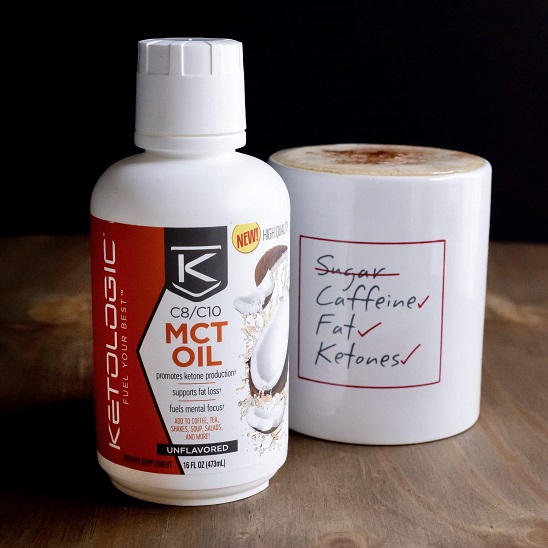MCT Oil (Medium Chain Triglyceride) should be on top of your list of supplements if you’re on the keto diet due to its incredibly diverse benefits. From improved mental health and body fat composition to physical performance, adding MCT oil to your diet can certainly benefit you in many ways.
But like anything else, the oil can have side effects too and one of these is having an upset stomach. Fortunately, there are ways on how to prevent it and make taking MCT oil more hassle-free.
Why MCT Oil Causes Upset Stomach
Before we identify some ways on how to prevent stomach upset with the oil, let us first find out what causes this side effect.
There are a few reasons why the MCT oil could trigger upset stomach. First, the oil is made of triglycerides that are somewhat unusual in the sense that they are processed much faster unlike the many other fats and oils.
According to Dave Asprey, the founder of the bulletproof coffee, also known as Keto Coffee:
MCTs are known for providing you with quick energy and a sharper brain. They’re absorbed more quickly than other fats and easily converted into energy.
As a result, the MCT oil will act as an irritant in your body that could trigger physiological mechanisms to flush your gut, leading to possible mild upset such as indigestion, stomach ache, and loose bowels.
Another possible reason is that some brands of MCT oil supplements source some of their ingredients from cosmetic industries, especially the C12 component or the lauric acid.
Because the lauric acid is not intended to be consumed internally, some companies use harsh chemicals in extracting the oil. As stated in the Healthy Home Economist:
Another problem with MCT oil and its cooking counterpart liquid coconut oil is how they are manufactured. Forcible removal of lauric acid from coconut oil is not an easy process. It typically requires chemical recombination of refined fatty acids in coconut oil with a synthetic vegetable based ester. Chemical residues in the resulting MCT oil would be a definite concern as a result.
The harsh chemicals used for extracting the lauric acid could irritate your gut lining, which could trigger an upset stomach.
Another possible reason behind your upset stomach is the C8 component of the MCT oil, or the Caprylic Acid, which is anti-microbial. It’s capable of eliminating many species of bacteria and yeast. Once the bacteria and yeast are exposed to this substance, it can cause an immune response that could irritate your stomach.
How to Prevent MCT Stomach Upset
Until your body adapts to the MCT oil, you could find yourself suffering from upset stomach. Some people may adapt to the oil faster than the others. Nevertheless, here are some ways on how to minimize or prevent upset stomach:
• Start off by taking 1/2 teaspoon the first time you use it for a couple of days until you see how you feel on it. Gradually build up the dose by a 1/2 teaspoon at a time until you get to the recommended dose which is usually 2 tablespoons.
If you’re already taking a high dose then stop taking it for a few days until your stomach settles down. Then start again using only 1/2 a teaspoon for a few days before gradually increasing it.
• Avoid taking it on an empty stomach. One of the most popular ways that people take MCT oils is first thing in the morning mixed with coffee, which itself is a bowel stimulant. Combining the two is a disaster for some people with a delicate stomach. Use it on vegetables or a salad.
• Choose only high quality MCT oil supplements that were not extracted from cosmetics and were mainly manufactured for oral consumption. MCT oil from KetoLogic is one that I can highly recommend.
Conclusion
While MCT Oil may cause you to suffer a slight stomach upset to begin with it is generally only short lived and would normally subside if you follow the advice above. Also it’s worth considering any other supplements and medications you’re taking as because it’s possible that these products could be causing your stomach upset and not the oil.










